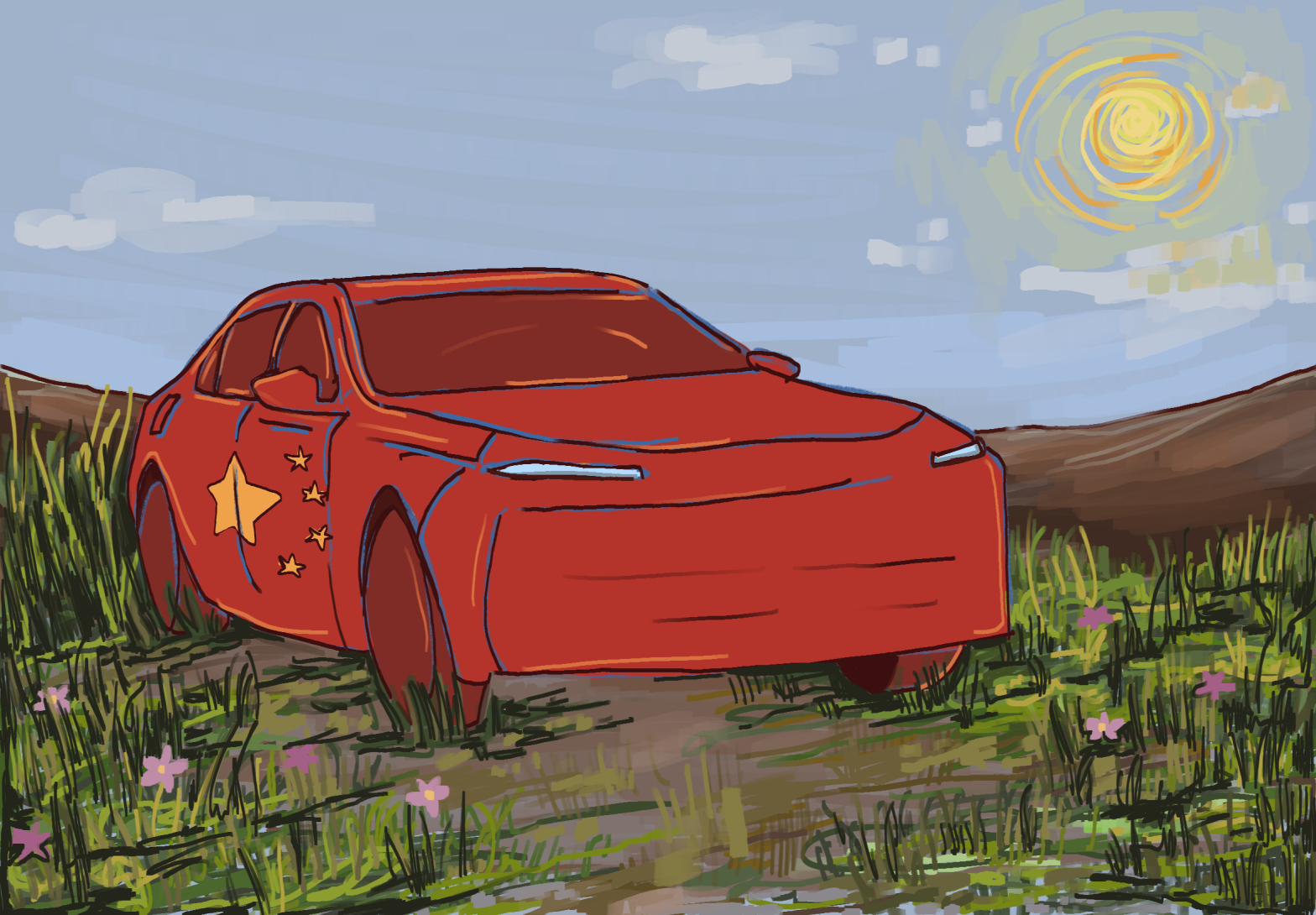BYD, the largest automotive manufacturer you have probably never heard of, is beating Tesla at its own game. In the fourth quarter of 2023, the Shenzhen-based carmaker sold 526,000 battery-powered vehicles, outpacing Tesla’s net sales by approximately nine percent. The announcement sent shockwaves across the financial and automotive communities, emblematizing long-held fears of rapid growth among Chinese electric vehicle manufacturers.
In 1995, BYD, or “Build Your Dreams,” a sort of crude post hoc backronym, was first launched as a battery manufacturer. After successfully capitalizing on a market gap for nickel-cadmium batteries, it expanded into the automotive industry employing a unique labor-intensive production process, dismissing traditional machinery. Loose employment regulations in China kept prices of cars remarkably low, catching the attention of Warren Buffet, who in 2008 became an influential backer of the company. Today, BYD’s ascent to global prominence represents a paragon for the Chinese automotive industry.
In an earnings call last month, Elon Musk lauded Chinese carmakers and expressed profound concern over their expansionary prospects: “I think they will have significant success outside China depending on what kind of tariffs or trade barriers are established.”
Such concern has been reflected in recent American government policies. In a protectionary tariff first imposed by Trump and extended by Biden, Chinese automobile manufacturers are burdened with a 27.5% import tax. Indeed, without these measures worldwide, the Tesla CEO predicts that BYD and similar Chinese auto manufacturers will “pretty much demolish most other car companies.”
While American trade policy with China is unlikely to change, the import-friendly European markets present a unique and profitable opportunity for Chinese firms.
Frank Schwop, a lecturer of automotive economics at the University of Applied Sciences FHM Hannover, told The Politic that “Chinese manufacturers are currently building a fleet of ships to transport cars.” According to Schwop, Chinese manufacturers like BYD are looking to expand market control in Europe, where a continent-wide push for emission-free transport is taking place. The appeal of Chinese companies, like BYD, that offer electric vehicles “several thousand euros cheaper than other long-established companies” is immediately obvious.
The rise of Chinese electric car manufacturers has caught the attention of European regulators. In the fall of 2023, the European Commission, the branch of the European Union responsible for proposing and upholding EU laws, launched a probe into Chinese EV manufacturers under alleged unfair trade practices.
The investigation has sparked awkward tensions between China and the EU, which have mutually dependent auto-manufacturing markets. Olof Gill, a spokesman for the investigation, justifies the probe’s attempt to “restore the level playing field” between the two markets, citing “massive subsidies by the Chinese state” as the leading contributor to BYD’s growth.
Gill insisted that Chinese auto manufacturers are “aggressively targeting the EU market as the main large market still available for its massive capacities.” The investigation will determine whether the European Union imposes “anti-subsidy duties,” otherwise known as punitive tariffs.
Industry experts are divided over the efficacy of such a measure.
To Schwop, punitive tariffs are a “double-edged sword.” For some European auto manufacturers—in particular, German manufacturers—China is their largest export market. This is true of VW, Audi, BMW, Mercedes, and Porsche. Overly stringent tariffs against China may result in an equally reactionary response, depressing “manufacturing and employment in both regions.” The European Commission needs to “balance protectionism” with a “globally competitive and sustainable EV market,” advises Schwop.
When asked whether the Commission would adjust its direction in anticipation of Chinese retaliation, spokesperson Gill declined to comment, calling the question “speculative.”
Julia Poliscanova, Senior Director of Vehicles & Emobility Supply Chains at the Transport & Environment Group, the largest European green transport advocacy organization, agrees with Schwop that punitive tariffs would likely drive a shift in BYD’s export policy—only in a different direction.
Abandoning intercontinental exports, Poliscanova envisions Chinese automakers beginning to build factories across Europe, beginning in Hungary, where BYD has plans to establish factories. “We’ve seen in the automotive industry again and again,” Poliscanova told The Politic, “when there is a significant market, they produce close to market.” She predicts this occurring with or without tariffs, as soon as BYD reaches its critical mass of production in China.
According to Polsicanova, the green lobby supports measures to bring industry to Europe. “We absolutely should be defending our industry,” but not at the expense of obstructing a robust European electric vehicle sector, she clarifies. Closing the market from foreign competition “will allow our carmakers to continue selling diesel and petrol,” effectively “delaying action that needs to happen.” She adds, “competition is good. Complete protection is not.”
But among experts, these strategic tariff debates aren’t the only conversations taking place. Schwop, for one, clarifies that there exists a possibility in which Chinese companies impose a short-term “self-restriction on car exports,” to avoid pressuring foreign manufacturers into pressing reactionary measures. Chinese manufacturers can take advantage of lessons learned from Japan’s explosive auto manufacturing market in the ‘80s.
The Commission has until July to establish provisional anti-subsidy duties, after which definitive measures can be imposed. These measures are guaranteed for five years until an expiry review determines whether they remain in place. How the Commission will seek to balance multiple competing interests among diplomats, auto manufacturers, and consumers, only time can tell.
But with transport ships and factories in Hungary under construction, one thing is certain: BYD sees business opportunities in Europe. Though the Commission’s probe may affect its immediate expansion, for now, and unless a comparable competitor arises, BYD seems poised to capture the European market.

